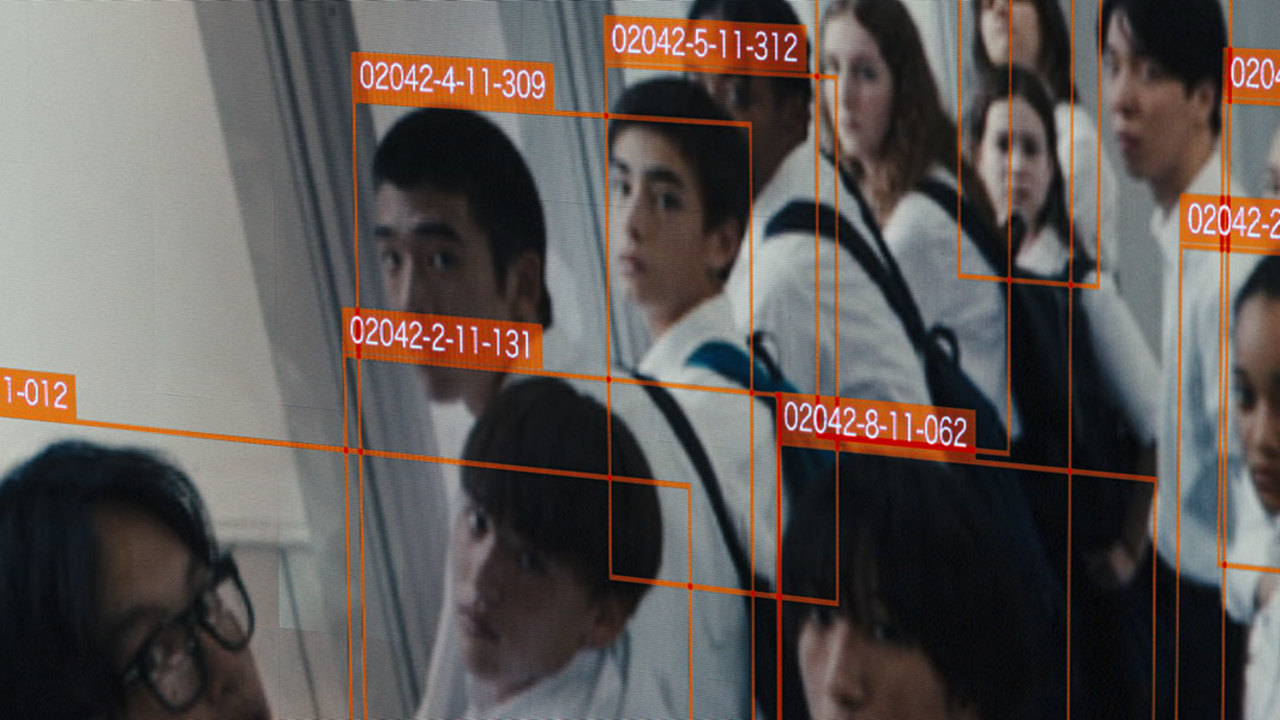In near-future Tokyo, rebellious students struggle to find their path in a society dangerously close to complete and total surveillance.

This beautifully crafted fiction feature debut from director Neo Sora transports us to a near-future Tokyo, a city on high alert for cataclysmic earthquakes and moving dangerously close to applying total surveillance to its public spaces. Focusing on a handful of rebellious adolescents struggling to find their path in a corrupt modern world, Happyend is an ode to youth’s stubborn insistence of dreaming of a better future.
Headphones permanently curled around their necks, Yuta and Kou are highschoolers who love to DJ. The film begins with the friends participating in a secret party that gets busted by police. The party is just one of the ways that Yuta and Kou try to escape the cameras proliferating throughout the city, especially at school, where a new system monitors and instantly scrutinizes student behaviour, reporting demerits in its live feed for all to see.
Adults insist the system ensures student safety, but the kids feel they’re being treated like prisoners. They wonder whether there’s any point in seeking change, asking age-old questions about the efficacy of protests. Some resort to spectacular pranks, such as standing the principal’s sportscar on its boot, while others stage a sit-in.
Hot on the heels of Ryuichi Sakamoto: Opus, Sora’s moving document of his late father’s final performance, Happyend, with its stunning vistas of eerily empty urban landscapes, announces Sora as a bold new visionary. Imagining Tokyo in a time of cultural and geological upheaval, Happyend is both speculative and urgent. Though these characters speak to us from the future, we are urged to consider their pleas in the here and now.
GIOVANNA FULVI
Screenings
Scotiabank 8
TIFF Lightbox 4
Scotiabank 3
TIFF Lightbox 4